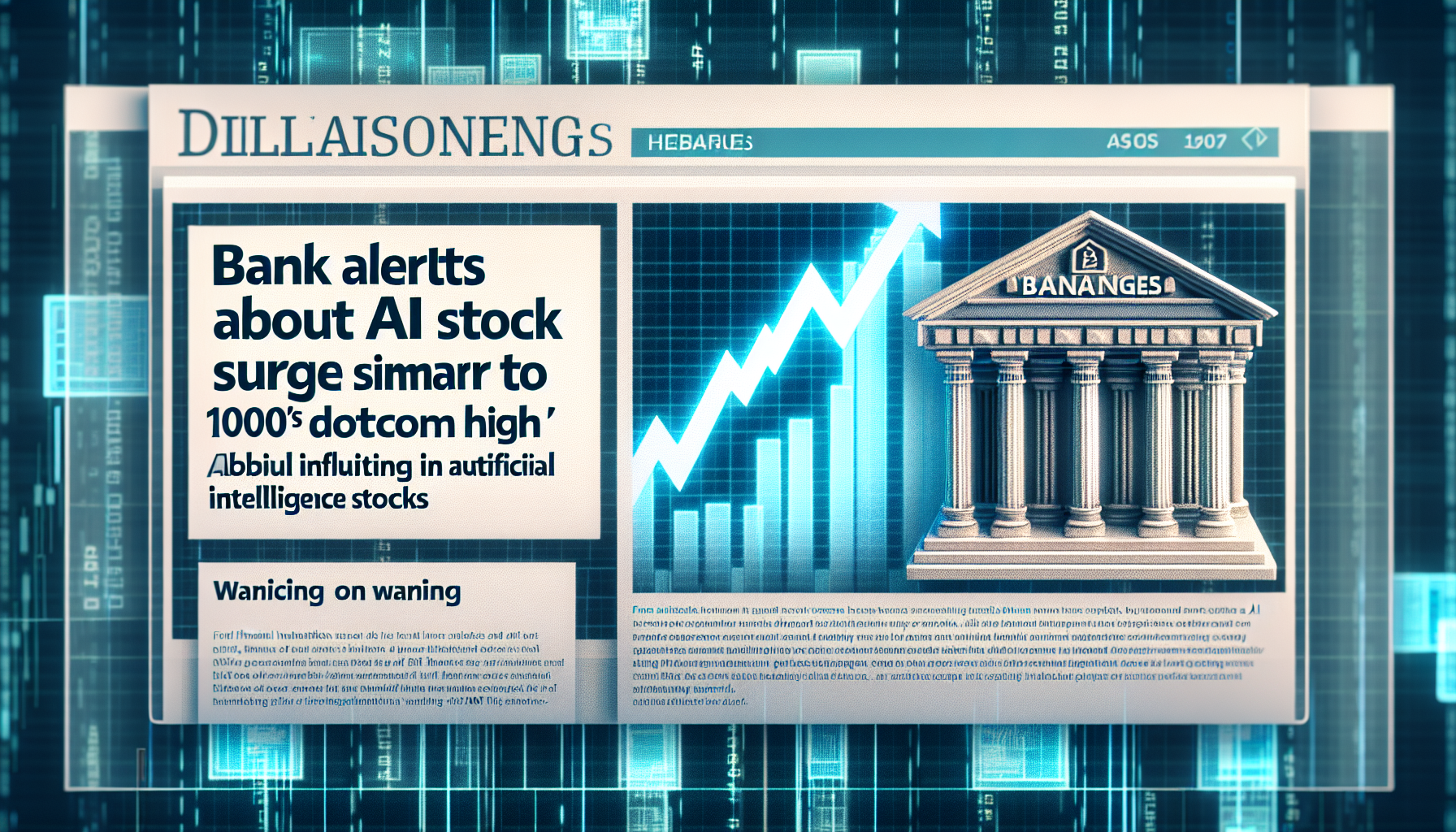
Bank of England Cautions on AI Stock Bubble: Insights from the Dotcom Period
The Bank of England (BoE) has raised a red flag about the present condition of the stock market, likening the rapid growth of the AI industry to the notorious dotcom bubble of the late 1990s. With stock prices soaring to levels akin to those seen at the dotcom climax, investors are left to question the durability of this expansion.
The Dotcom Bubble: A Historical Comparison
During the late 1990s, the dotcom bubble was marked by a rush of investment in online firms, fueled by the promise of a digital revolution. Between 1995 and March 2000, the Nasdaq index skyrocketed by 600%, only to crash by 78% when the bubble burst. This historical occurrence acts as a warning for contemporary investors, emphasizing the dangers of speculative investing without a definitive roadmap to profitability.
AI Investments: A New Horizon or a Bubble Developing?
The BoE’s alert indicates that the current AI market may be undergoing a comparable speculative surge. Although AI technologies possess significant potential, the concern lies in whether the existing investment levels are warranted by anticipated gains. The heavy investment concentration in AI could render the market susceptible if projections are not fulfilled.
Market Concentration and Investor Anticipations
The BoE observes that stock valuations grounded in historical earnings have hit their peak levels since the dotcom bubble. Nevertheless, when evaluating investors’ expectations for future profits, these valuations seem less excessive. This dependence on potential future returns rather than current profitability could subject the market to considerable risks if optimism diminishes.
The Significance of AI in Contemporary Markets
AI technologies are undeniably revolutionizing sectors, providing new efficiencies and capabilities. Yet, the prevailing question is whether the financial support of AI firms aligns with the actual economic benefits they can yield. The Internet, notwithstanding the dotcom bubble, turned out to be a transformative entity; similarly, AI could follow suit, but achieving profitability is essential.
Conclusion
The BoE’s warning serves as a reminder of the potential instability in markets influenced by speculative investment. While AI shows revolutionary potential, investors must stay alert, ensuring that their enthusiasm is coupled with realistic profitability expectations. The insights from the dotcom era highlight the necessity of cautious optimism amidst swift technological progress.
Q&A: Critical Queries on the AI Stock Bubble
Q1: What is the primary worry of the Bank of England regarding AI investments?
A1: The BoE is apprehensive that current AI investment levels are driven more by speculative excitement than by realistic profitability, akin to the dotcom bubble.
Q2: How does the dotcom bubble connect to today’s AI market?
A2: Both eras exhibit rapid investment expansion driven by technological promise, with the danger of market adjustment if anticipated outcomes are not achieved.
Q3: Are present AI share valuations warranted?
A3: Although elevated, current valuations seem less extreme when factoring in future profit expectations, yet they still present a risk if those expectations fall short.
Q4: What insights can investors glean from the dotcom bubble?
A4: Investors need to be wary of speculative investments and ensure that enthusiasm for emerging technologies is rooted in viable profitability forecasts.
Q5: Could AI prove as revolutionary as the Internet?
A5: AI has the capacity to be transformative, but its economic influence will hinge on the successful commercialization and profitability of AI innovations.